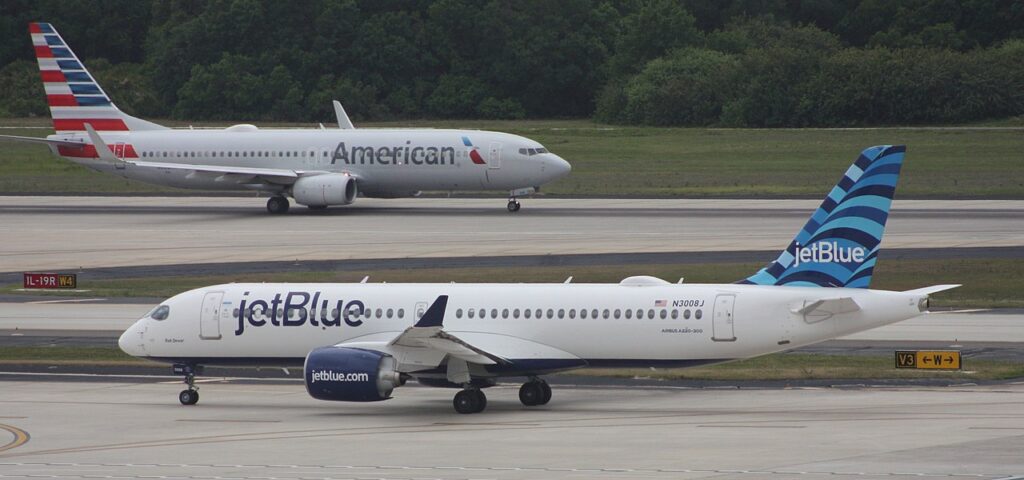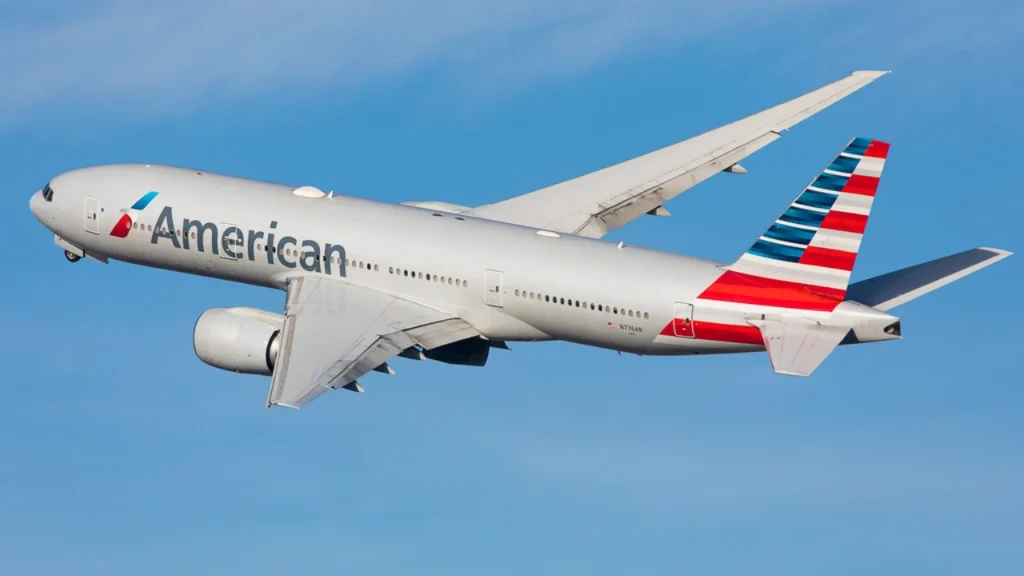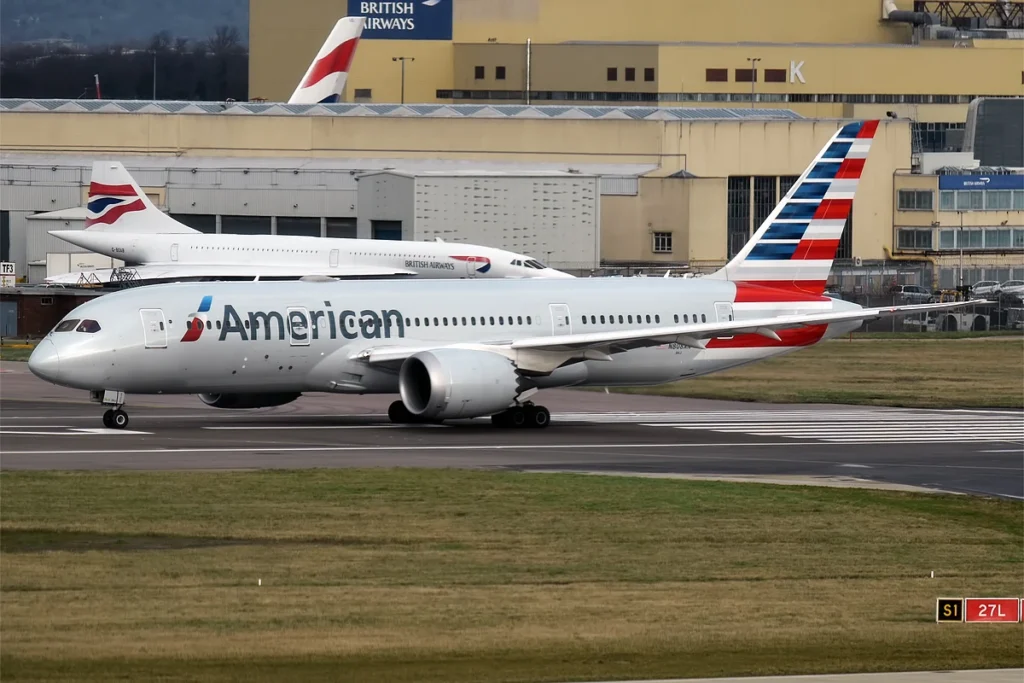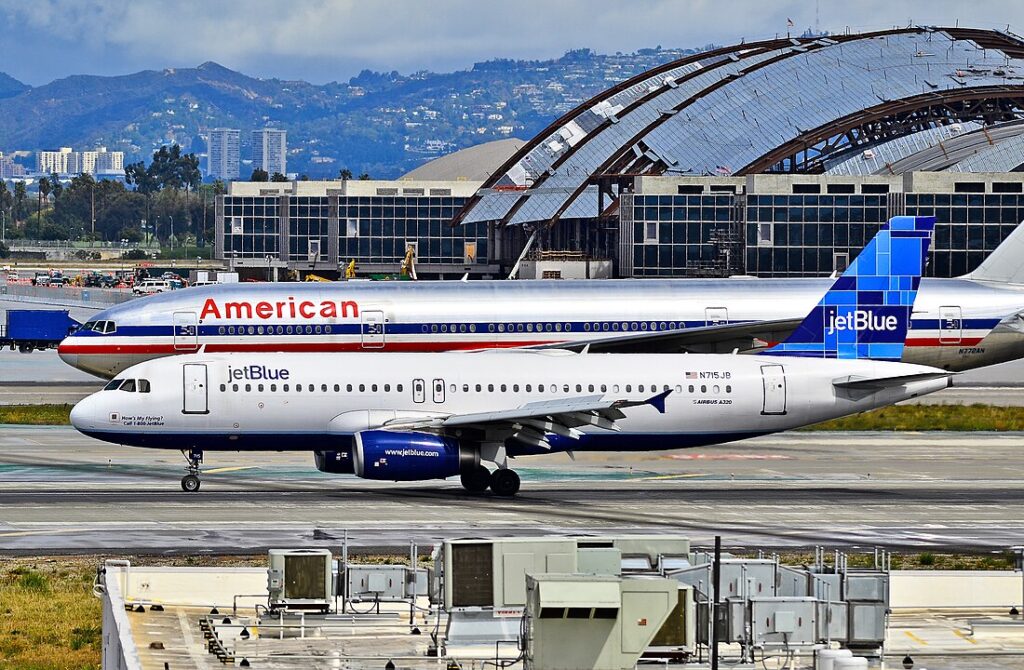BOSTON- A US appeals court upheld a ruling on Friday rejecting American Airlines’ (AA) attempt to overturn a decision declaring its now-defunct Northeast Alliance (NEA) with JetBlue Airways (B6) anticompetitive.
The 1st U.S. Circuit Court of Appeals in Boston agreed with the earlier ruling that the NEA violated federal antitrust laws.

American Airlines JetBlue Merger Re-Appeal Rejected
The NEA, established in 2020, allowed American Airlines, the largest U.S. airline, and JetBlue, the sixth-largest, to coordinate flights and pool revenue on routes serving New York City and Boston.
U.S. District Judge Leo Sorokin ruled in May 2023 that the partnership harmed competition, siding with the Department of Justice (DOJ) and six states that filed a lawsuit to block the agreement.
Following Sorokin’s ruling, JetBlue terminated the NEA as it faced mounting antitrust challenges, including a DOJ lawsuit opposing its $3.8 billion bid to acquire Spirit Airlines (NK). JetBlue later abandoned its Spirit acquisition efforts.
American Airlines continued to appeal the NEA ruling, arguing that it unfairly restricts the company from forming similar partnerships for 10 years, including with JetBlue.
The appeals court’s decision reinforces restrictions on such arrangements, emphasizing antitrust concerns in the airline industry.

Background on the Northeast Alliance
American Airlines and JetBlue formed the NEA in 2020, effectively consolidating operations for most routes to and from New York City and Boston. Under this joint venture, the airlines coordinated schedules and pooled revenue, functioning as a single carrier in the region.
The U.S. Department of Justice (DOJ), supported by several states, challenged the agreement, arguing it diminished competition in an already concentrated market.
Market Concentration and Competitive Dynamics
The U.S. airline industry is dominated by a few major carriers. American Airlines, a global network carrier (GNC), is the largest, operating extensive domestic and international networks. Alongside Delta Air Lines and United Airlines, the three GNCs control roughly 80% of domestic air travel.
JetBlue, classified as a hybrid carrier, has historically positioned itself as a disruptor with competitive fares and services, particularly in its focus cities like New York and Boston.
Before the NEA, American and JetBlue competed directly on all shared routes, including 29 key routes to and from New York and Boston. These cities accounted for a significant portion of JetBlue’s operations, with 75% of its routes originating or ending there.
Both carriers wielded substantial market shares, with the four largest airlines controlling over 70% of New York’s market and more than 80% of Boston’s.
Airport Constraints and Competitive Barriers
Key Northeast airports like JFK and LaGuardia face significant operational constraints due to limited gates and slots. These resources, controlled by the Federal Aviation Administration, are essential for carriers seeking to expand service but are scarce and highly competitive.
The court noted that these barriers exacerbate the already limited opportunities for new entrants or smaller carriers to challenge established players.
The court underscored that domestic airline partnerships, unlike international agreements, have traditionally been limited to interline agreements and code-sharing, which involve less integration. By contrast, the NEA’s revenue-sharing and joint scheduling represented an unprecedented level of cooperation between domestic competitors.
The appellate court affirmed that the NEA stifled competition in a critical region, reducing incentives for price and service competition

West Coast International Alliance (WCIA)
In 2019, American Airlines began reshaping its domestic strategy to address weaknesses on the East and West Coasts. On the West Coast, this led to the 2020 formation of the West Coast International Alliance (WCIA) with Alaska Airlines.
This partnership deepened code-sharing and introduced non-reciprocal revenue sharing in complementary markets, while avoiding coordination on overlapping routes. Alaska also joined the oneworld alliance, enhancing connectivity. The WCIA, deemed a success by American, remains active today.
American Airlines faced more challenges on the East Coast, particularly in New York. Despite holding the second-most slots at LaGuardia (LGA) and the third-most at John F. Kennedy International (JFK) in 2019, American considered its New York operations underperforming.
It also feared losing underutilized JFK slots, which the FAA scrutinized. Simultaneously, JetBlue struggled to expand due to limited access to additional slots at JFK and LGA and perceived Delta’s growing dominance in Boston as a threat.
You can read more here.

Conclusion
The NEA faced scrutiny from the DOT and ultimately became the subject of legal action by the Department of Justice (DOJ) and several states, which alleged violations of antitrust laws.
While the NEA included commitments like slot divestitures and route guarantees to mitigate competitive harm, these measures failed to appease regulators.
The NEA’s design, intended to fortify both carriers in a crowded market, ultimately contributed to its legal downfall, as courts determined its impact on competition outweighed any claimed benefits.
Stay tuned with us. Further, follow us on social media for the latest updates.
Join us on Telegram Group for the Latest Aviation Updates. Subsequently, follow us on Google News

